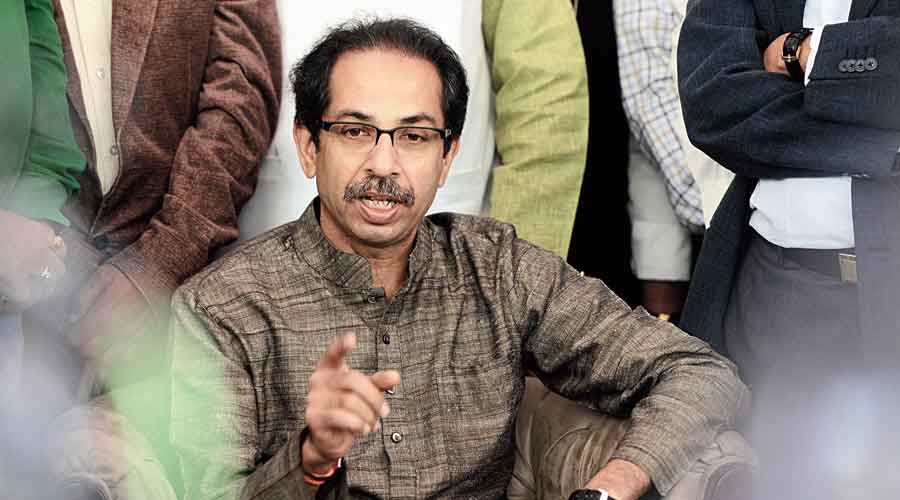Addressing party workers on the occasion of the Shiv Sena’s annual Dasara Melava, the party president and Maharashtra chief minister, Uddhav Thackeray, launched a frontal attack on the Bharatiya Janata Party and its version of Hindutva, saying that Hindutva faced a threat not from outsiders but from “neo-Hindus” propped up by the BJP. Thackeray lashed out at his former ally, accusing it of using Hindutva for “climbing the ladder of power” and of adopting the British policy of divide and rule. In his hour-long speech, he spent over 20 minutes attacking the BJP and distinguishing his Hindutva from that of the RSS-BJP.
While countering allegations of the Shiv Sena abandoning Hindutva for power, Thackeray has frequently made statements stressing on the fact that his and his party’s Hindutva is different from the BJP’s Hindutva. He further added that people killing one another was not his idea of a Hindu rashtra. A month after being sworn in as the chief minister, he had gone on to say that mixing religion with politics had been a mistake committed by his party. Another remarkable development has been the toning down of the Shiv Sena’s communal rhetoric against Muslims. When members of the Tablighi Jamaat were being branded as ‘super-spreaders’, Thackeray urged people to not vitiate the atmosphere, reminding them that the virus did not discriminate on the grounds of caste or religion. When Maharashtra’s governor in his letter asking for the immediate re-opening of places of worship mockingly asked the chief minister if he had turned ‘secular’, the latter responded by reminding the governor that the word, ‘secular’, was in the Constitution he had sworn to protect when he took oath of office in the Raj Bhavan.
Unsurprisingly, the BJP has not let go of the opportunity to dismiss this as a classic case of the political compulsion of being in an alliance with ideologically disparate parties like the Congress and the Nationalist Congress Party. However, the Shiv Sena had begun building bridges with the Muslim community way before the formation of the MVA government. After Thackeray took over the party’s reins in 2012, attempts were made to whittle down its anti-minority character. In the 2017 polls to the Brihanmumbai Municipal Corporation, the party fielded five Muslim candidates. Even when it was in alliance with the BJP, the Shiv Sena had launched the ‘Mi Marathi Musalman’ campaign to reach out to Muslims and supported the demand for the implementation of Muslim quota in jobs and education.
Uddhav seems to be more inspired by the political legacy of his grandfather, Prabodhankar Thackeray, than his father, Bal Thackeray. A fiery social reformer influenced by the troika of Ambedkar-Sahu-Phule, Prabodhankar is often referred to as the pioneer of Bahujanwadi Hindutva — Hindutva sans Brahminical hegemony. During the launch of a booklet on Prabodhankar Thackeray, Uddhav said his Hindutva includes all sections of society. Bal Thackeray’s Hindutva was extreme, replete with anti-minority rhetoric, Prabodhankar’s Hindutva was quite the opposite — liberal, inclusive and inward-looking with a penchant for social reform. Interestingly, Prabodhankar had bitterly contested M.S. Golwalkar’s demand for a ban on cow slaughter.
In a tripartite government comprising parties of different ideologies, the Shiv Sena is reinventing and reorienting itself relying on the legacy of Prabodhankar Thackeray for two reasons. First, this makes it easy for the party to run the government with the Congress-NCP and, second, because Uddhav’s political beliefs are aligned more with the views and the politics of his grandfather.
With the MNS and the BJP vying to grab the belligerent Hindutva space left vacant by the Shiv Sena, electoral returns — say, the BMC polls in 2022 — would determine whether Uddhav continues to follow Prabodhankar’s path.
Omkar Poojari is a Mumbai-based columnist

